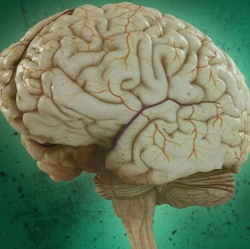
UK experts studied brain scans of 120 men and women, with half of those studied having autism. The differences found in the research, published in journal Brain, show more work is needed to understand how autism affects girls, the scientists say.
Experts said girls with the condition could be more stigmatised than boys – and it could be harder for them to be diagnosed at all. Autism affects 1% of the population and is more prevalent in boys, so most research has focused on them.
In this study, scientists from the Autism Research Centre at the University of Cambridge used magnetic resonance imaging (MRI) to examine how autism affects the brain of males and females. Male and female brains differ anyway – tissue volume is greater in males.
The study looked at the difference between the brains of typical males and those with autism – and then females with and without autism.
They found the brains of females with autism "look" more like – but still not the same as – healthy males, when compared with healthy females.
But the same kind of difference was not seen in males with autism – so their brains did not show "extreme" male characteristics.
Dr Meng-Chuan Lai, who worked on the study said: "What we have known about autism to date is mainly male-biased.
